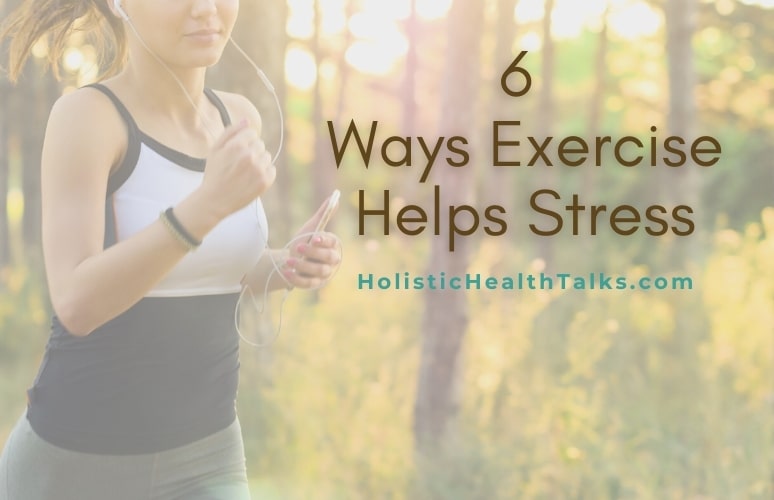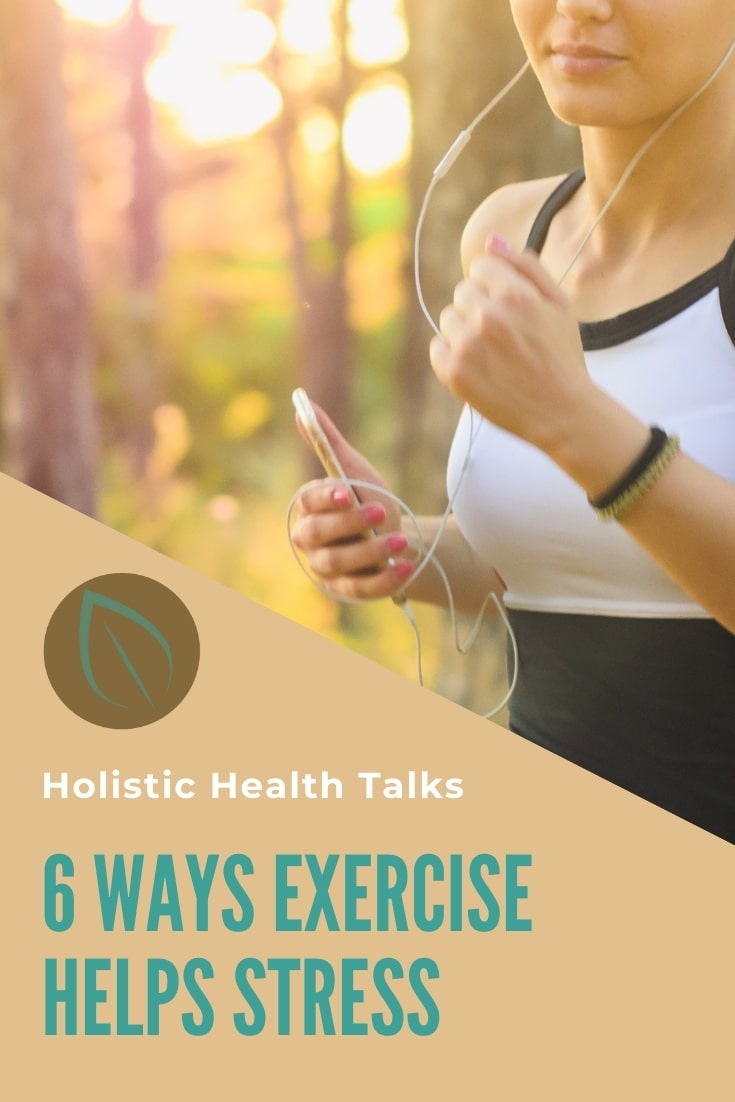
Exercising is a great way to stay in shape, reduce body weight, enjoy excellent health, and keep stress at bay. If you’re not convinced exercising can help, here are 6 different ways exercise helps stress naturally.
Stress is present in the lives of most people. We live fast-paced lives, we have challenging and stressful jobs, we’re always on the run, and we rarely find time to relax. Unfortunately, stress can lead to serious health problems. Whether we are talking about physical or mental problems, stress is the culprit in very many cases. It is an invisible enemy that greatly affects an impressive number of people, decreasing the quality of their lives and negatively influencing their state of health.
Ways Exercise Helps Stress
However, there is good news as well. You can use the power of physical exercises to reduce the impact of stress on your life.
1. Helps Holistically
One of the main advantages of exercising is that it helps you holistically. You’re not using just the muscular system, but also the cardiovascular system, respiratory system, and so much more. To withstand physical effort while making sure everything works right, all these systems are stimulated to work together better, which leads to improved functioning of the entire body. Not to mention that exercising improves other processes in the body and mind.
2. Stimulates the Production of Endorphins
Endorphins are the ones that make us feel happy and satisfied. This type of hormone can lift our spirits and improve our mood, so you may want to look for them when you’re feeling stressed. How to do so? Get engaged in some physical exercises and you’ll immediately feel their presence.
3. Naturally Stress Relieving
The ancient man ran away from danger, as this is what his instincts and body told him to do so. Of course, we no longer need to do this, but by jogging or exercising, we manage to release the same kind of chemicals into the body. The brain will react to the stimuli and will make us feel better and more relaxed, now that the “danger” is gone.
4. Rhythmic Movements Relax the Mind
Performing movements with certain rhythmicity help the mind relax. This is why exercising or doing any kind of physical activity that involves repeating the same kind of movement is capable of calming you down. Whether you’re jogging, cycling, swimming, or any other kind of exercise that including a rhythmic flow, you’ll feel much better in the end.
5. Helps you Sleep Better at Night
A proper workout routine will help you sleep better at night, allowing you to wake up rested and refreshed in the morning. And when you’re properly rested, nothing seems too daunting during the day.
6. Better Time Management Skills
Including an exercising routine in your weekly and daily schedule will make you employ better time-management skills. If you want to succeed, you need to find ways to be more effective during the day, so you’ll have sufficient time to reduce stress through exercising as well.
If you can’t find motivation exercising alone, you may want to join a class or group, in person or online. Within a group, the level of motivation is higher as members encourage one another and support the performance of others. Plus, you won’t feel alone, which is extremely beneficial when trying to remove stress from your life.
Exercise, Stress, and the Brain Video
Exercise is interesting in terms of effects on the brain because it works in about 4 or 5 different ways. One of the most obvious ways is blood flow. So if you get your heart working your brain is going to be filled with oxygen rich blood and nutrients, so that’s the main way that we thought it helps.
The other way that’s sort of interesting, is it’s been thought that exercise produces new neurons. So exercise induces the production of growth factors, one’s called BDNF and it actually stimulates the production of new brain cells.
Now, when I was in school 20 years ago we were told you can’t get any new brain cells, so when you’re born, that’s your lot, you’re not going to make any more. But more recently we’ve found that exercise is a really good way of stimulating brain cell production. And some of these are functional. And so just this notion that something that you can do can generate new brain cells is a really great thing to think about.
We were wondering why exercise helps the brain, and what one theory is, is that it just reduces stress.
So maybe it’s not that blood is coming to the brain. Maybe you’re less stressed. And that was something that imaging allowed us to test. And so we scanned a whole lot of people with high cortisol levels, and so if you’re stressed, if you’re angry about something, or even if you’re stuck in traffic, your cortisol levels can be very high.
One of the things we found is that the people with high cortisol levels, lost brain tissue faster. Well, that’s a serious problem so as soon as you know that’s true, you can look at ways of reducing your cortisol and so that’s a very easy thing to do. We can get less stressed by exercising, walking, taking breaks.
And so imaging established a physical connection, between something in your blood, cortisol that’s a sign of stress, and actual physical changes in the brain and that’s very useful to know. Take care of your brain. There’s a lot of ways we know that you can take care of your brain.
You can eat a good diet, you can exercise, you can reduce stress, you can make sure you’re well educated, and these things just build up a sort of mental bank account for the future and so even though it seems like work is hard, you’re building a store of brain connections that you’ll need the for the rest of your life. So these are practical messages that we’ve learned from imaging a lot of people.
Share on Pinterest





